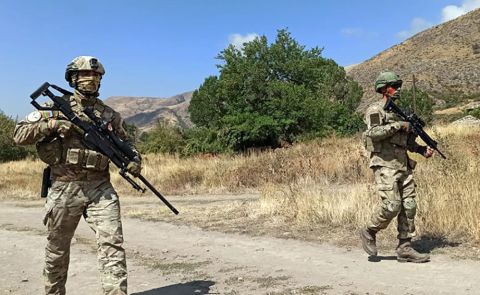
Georgians demanding freedom for Saakashvili
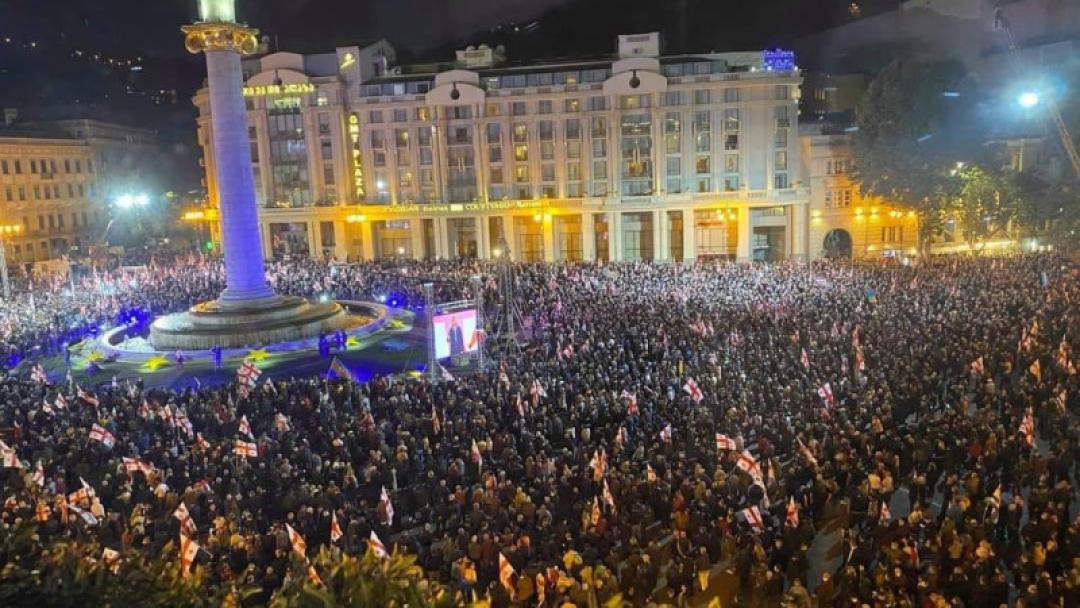
Thousands of people have gathered in Tbilisi in support of former president Mikheil Saakashvili, who is on his 14th day of hunger strike in prison.
The protest was organised by Georgia’s largest opposition party, Saakashvili’s United National Movement (UNM).
The third Georgian President, currently a Ukrainian citizen heading the Executive Reforms Committee of Ukraine, was arrested two weeks ago after covertly crossing into Georgia on the eve of local elections.
Saakashvili has claimed that he is the target of personal political repression by Bidzina Ivanishvili, the founder of the ruling Georgian Dream Party, and Russian President Vladimir Putin.
Demonstrators flooded the city's Freedom Square and main artery Rustaveli Avenue on October 14, chanting Saakashvili's nickname "Misha!" and waving national flags. Attendance was believed to be around 50,000 people.
Saakashvili called on his supporters to mobilise against Ivanishvili, who founded the governing Georgian Dream party and is widely believed to be the top decision-maker in the country.
Former Georgian President Mikheil Saakashvili was detained on October 1 after returning to Georgia and imprisoned in Rustavi, where he went on a hunger strike and promised to continue until his release. Georgian President Salome Zourabichvili ruled out his pardon. On October 9, Saakashvili appealed to the international community with a complaint about the delay in the consideration of his cases in court. The politician suggested that he was being deliberately held in isolation in anticipation of the second round of municipal elections.
See Also

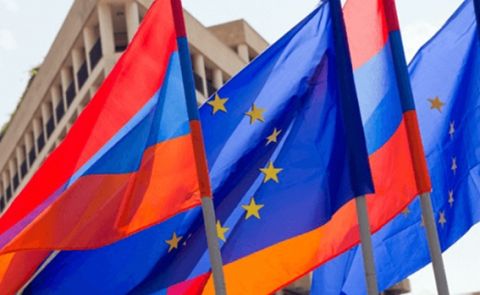
Pashinyan and Mirzoyan Hold Separate Meetings with European Leaders to Focus on Armenia’s EU Integration, Human Rights Progress, and Regional Developments
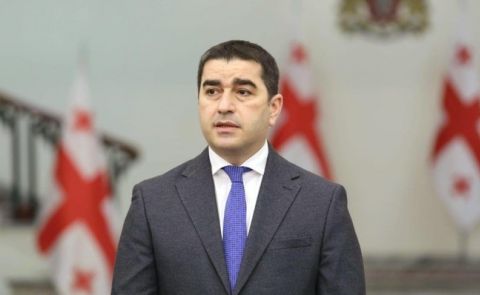
Georgian Parliament Speaker Participates in EU Parliamentary Conference, Engages in High-Level Bilateral Talks
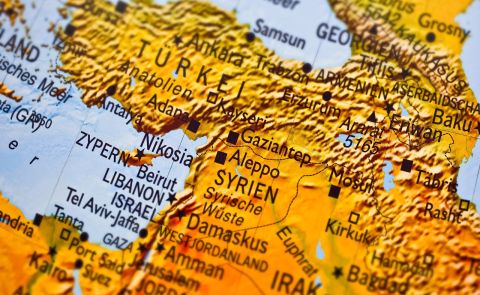
Separatist Abkhazia and Syria Discuss Strengthening Academic Ties, Potential Agreement Between Universities

Georgia Announces Legislative Changes Targeting Foreign Nationals in Anti-Government Protests
